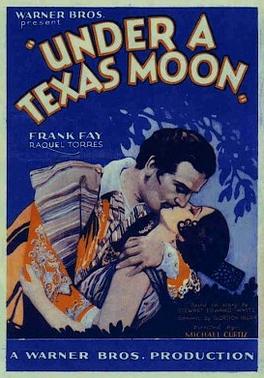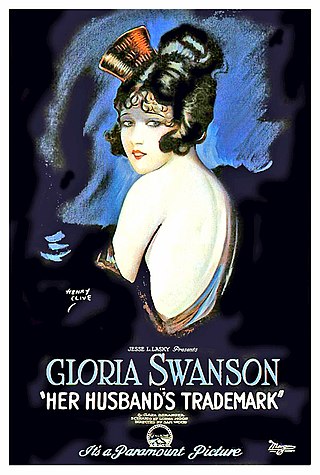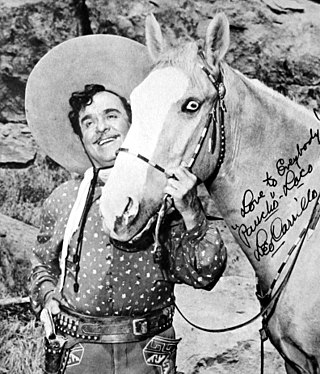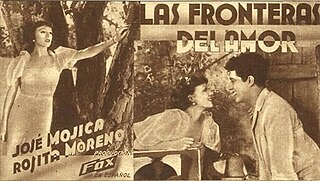Related Research Articles

Rio Grande is a 1950 American romantic Western film directed by John Ford and starring John Wayne and Maureen O'Hara. It is the third installment of Ford's "Cavalry Trilogy", following two RKO Pictures releases: Fort Apache (1948) and She Wore a Yellow Ribbon (1949). Wayne plays the lead in all three films, as Captain Kirby York in Fort Apache, then as Captain Nathan Brittles in She Wore a Yellow Ribbon, and finally as a promoted Lieutenant Colonel Kirby Yorke in Rio Grande. Rio Grande's supporting cast features Ben Johnson, Claude Jarman Jr., Harry Carey Jr., Chill Wills, J. Carrol Naish, Victor McLaglen, Grant Withers, the Western singing group the Sons of the Pioneers and Stan Jones.
The Río Arriba Rebellion, also known as the Chimayó Rebellion, was an 1837 Pueblo-Hispano popular revolt in New Mexico which succeeded in briefly placing José María González and Pablo Montoya as governor of Mexico's Santa Fe de Nuevo México territory. González and Montoya were both Taos Pueblo Indians and led the independent Junta Popular or Cantón, which was the most ethnically inclusive government in the history of New Mexico. They remain the only Pueblo governors of New Mexico to this day.

Ride, Vaquero! is a 1953 American Western film photographed in Ansco Color made by Metro-Goldwyn-Mayer (MGM). It was directed by John Farrow and produced by Stephen Ames from a screenplay by Frank Fenton and John Farrow. The music score was by Bronislau Kaper and the cinematography by Robert Surtees.

Harry Love was the head of California's first state-wide law enforcement agency, the California Rangers, and became famous for allegedly killing the notorious bandit Joaquin Murrieta. The California Rangers were also considered to be part of California's early state militia, the predecessor to the current California Army National Guard, with Love holding the rank of Captain within the state.

Under A Texas Moon is a 1930 American pre-Code musical Western film photographed entirely in Technicolor. It was based on the novel Two-Gun Man which was written by Stewart Edward White. It was the second all-color, all-talking feature to be filmed entirely outdoors, as well as being the second Western in color and the first all-talking, all-color Western. The film features one theme song by the title of "Under A Texas Moon."

In Caliente is a 1935 American romantic musical comedy film directed by Lloyd Bacon, starring Dolores del Río and Pat O'Brien. The film was written by Ralph Block and Warren Duff. The musical numbers were choreographed by Busby Berkeley. It was released by Warner Bros. on May 25, 1935.

Ten Tall Men is a 1951 American adventure film starring Burt Lancaster about the French Foreign Legion during the Rif War in Morocco. Though co-written and directed by Willis Goldbeck, Goldbeck walked off the film due to disputes with Lancaster with the movie being completed by Robert Parrish. Credited as an associate producer, Robert Aldrich was a production manager on the film where he met Lancaster, which led him to direct Vera Cruz for him. Robert Clary made his debut in the film as an Arab batman. Portions of the film were filmed in Palm Springs, California. The story was released as a Fawcett Movie Comic #16 in April 1951.

Neptune's Daughter is a 1949 American Technicolor musical romantic comedy film released by Metro-Goldwyn-Mayer starring Esther Williams, Red Skelton, Ricardo Montalbán, Betty Garrett, Keenan Wynn, Xavier Cugat and Mel Blanc. It was directed by Edward Buzzell, and features the debut of the Academy Award–winning song "Baby, It's Cold Outside" by Frank Loesser.

Denver and Rio Grande is a 1952 American Technicolor Western film, directed by Byron Haskin and released by Paramount Pictures. The film is a dramatization of the building of the Denver and Rio Grande Railroad, which was chartered in 1870. It was filmed in the summer of 1951 on location on actual D&RG track near Durango, Colorado.

Her Husband's Trademark is a 1922 American silent drama film directed by Sam Wood and starring Gloria Swanson and Richard Wayne. Produced by Famous Players–Lasky and distributed by Paramount Pictures, the film was shot on location in El Paso, Texas.

The Eagle and the Hawk is a 1950 American Western film directed by Lewis R. Foster and written by Lewis R. Foster and Daniel Mainwaring. The film stars John Payne, Rhonda Fleming, Dennis O'Keefe, Thomas Gomez, Fred Clark and Frank Faylen. The film was released on May 30, 1950, by Paramount Pictures.

American actor Bob Steele, and his twin brother Bill were the sons of film director Robert N. Bradbury. The twins began their acting career in the silent film The Adventures of Bill and Bob, directed by their father, and continued in a series of Bradbury Sr.'s film shorts. Bill later pursued a career in medicine. Bob continued to act under his real name, until The Mojave Kid when he was billed as Bob Steele. During his career of more than 100 films and television shows between 1920 and 1974, he was known primarily for his work in Westerns. Steele appeared as the recurring character of Tucson Smith in 20 of the Three Mesquiteers serials produced by Republic Pictures. He became familiar to America's television audiences for his recurring role as Trooper Duffy in the comedy series F Troop.

Leo Carrillo (1881–1961) was an American cartoonist, a comedian in vaudeville, and an actor on stage, film and television. He was best known in the United States as the Cisco Kid's sidekick Pancho on 1950s children's television, a role which capped a long show business career that began decades earlier.

The Stronger Love is a 1916 American drama silent film directed by Frank Lloyd, written by Julia Crawford Ivers, and starring Vivian Martin, Edward Peil, Sr., Frank Lloyd, Jack Livingston, Alice Knowland, and Herbert Standing. It was released on August 13, 1916, by Paramount Pictures.

Natalia Anciso is an American Chicana-Tejana contemporary artist and educator. Her artwork focuses primarily on issues involving Identity, especially as it pertains to her experiences growing up along the U.S.-Mexico Border, via visual art and installation art. Her more recent work covers topics related to education, human rights, and social justice, which is informed by her experience as an urban educator in the San Francisco Bay Area. She is a native of the Rio Grande Valley of South Texas and currently lives and works in Oakland, California.

Rose of the Rio Grande is a 1938 American Western film directed by William Nigh and starring Movita Castaneda as Rosita de la Torre.

The Cisco Kid Returns is a 1945 American Western film. Released on April 3, 1945, it was the first of three Cisco Kid films made that year with Duncan Renaldo as Cisco and Martin Garralaga as Pancho. In this release, Cisco's real name is Juan Francisco Hernandez. Cisco must clear himself of murder charges, while preventing his girlfriend Rosita (Callejo) from eloping with his rival John Harris (Pryor).

In Old New Mexico is a 1945 American western drama film. Released on May 15, 1945, it was the second of three Cisco Kid films made that year with Duncan Renaldo as Cisco and Martin Garralaga as Pancho.
South of the Rio Grande is a 1945 American western film. Released on September 15, it was the third of three Cisco Kid films made that year with Duncan Renaldo as Cisco and Martin Garralaga as Pancho.

Las fronteras del amor is a 1934 American Spanish language romance film directed by Frank Strayer, which stars José Mojica, Rosita Moreno, and Rafael Corio. The screenplay was written by Winifred Dunn and Miguel de Zárraga, from a screenplay by Bernice Mason.
References
- ↑ "Lasca of the Rio Grande". AFI Catalog of Feature Films. AFI. Retrieved July 19, 2015.